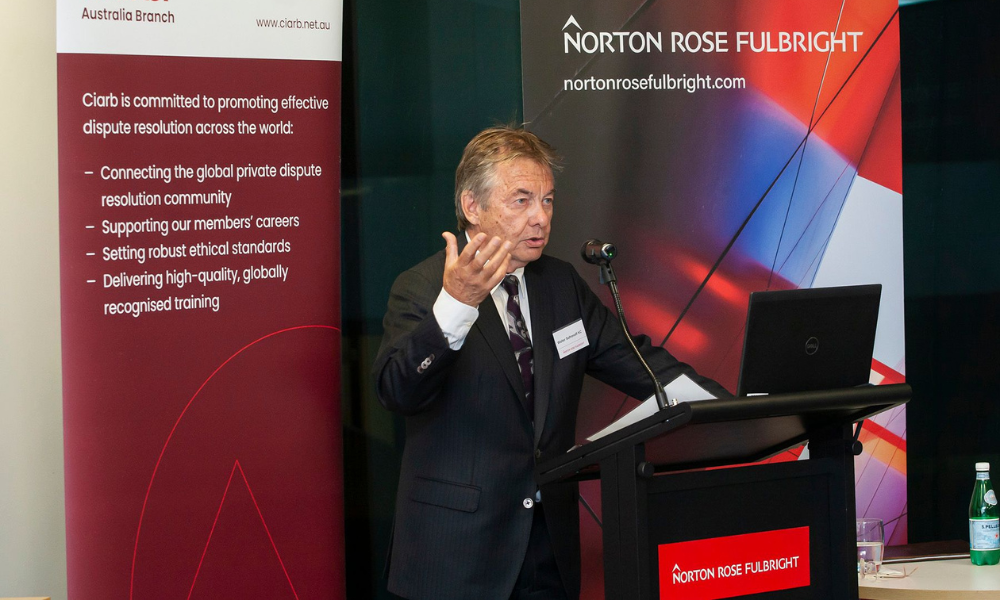
Codes of ethics worldwide tend to share common foundation, mediator-arbitrator notes in speech

Walter Sofronoff delivered a speech on multicultural ethics and professionalism in international arbitration at the annual lecture of the Chartered Institute of Arbitrators (Ciarb) Australia on 15 October, hosted by Norton Rose Fulbright in its Brisbane office.
Sofronoff addressed the complexities of ethical standards in international arbitration, particularly the challenges that arise when practitioners from different legal systems operate under conflicting ethical norms.
He began by highlighting a persistent concern in the field: the possibility that lawyers from jurisdictions with different ethical rules might engage in conduct considered improper elsewhere. This inconsistency could provide an unfair advantage to one party. He referenced a 2010 paper that proposed an international code of ethics to standardise these practices.
Sofronoff examined a hypothetical example of a New York arbitration involving lawyers from Italy and the U.S., where document production requirements differ. This scenario illustrated how local ethical codes could create conflicting obligations for lawyers.
He referred to the concept of “double deontology,” where a lawyer may face irreconcilable ethical duties under different jurisdictions.
Sofronoff discussed international arbitration cases raising ethical questions about counsel conduct, including Hrvatska v Slovenia. In that case, a party argued that a professional relationship between a barrister and an arbitrator, who were members of the same chambers, compromised the tribunal’s integrity.
Although barristers in the U.K. are sole practitioners, their chambers often present themselves as cohesive units. The arbitral tribunal acknowledged this concern and ruled that, while barristers from the same chambers could participate in such cases, it should be evaluated on a case-by-case basis.
The lecture also addressed the issue of whether international tribunals possess the authority to regulate lawyer conduct. Sofronoff noted that, while some tribunals have inherent powers to preserve the integrity of proceedings, there remains a lack of universal rules governing ethical behaviour.
Sofronoff questioned the assumption that differences in ethical codes across the world present serious problems in arbitration. He argued that the perceived issues are often the result of disputes over substantive law and not necessarily conflicting ethical obligations.
According to Sofronoff, most ethical codes around the world share a common foundation rooted in fairness, honesty, and good faith. These universal principles ensure that lawyers’ duties to their clients align with their duties to the arbitral tribunal.
He concluded by challenging the call for a universal code of ethics in international arbitration. He argued that existing ethical frameworks already provide guidance and that arbitral tribunals possess the tools needed to maintain fairness in arbitration proceedings. He noted that tribunals, rather than needing disciplinary powers over lawyers, should focus on ensuring procedural fairness.
Sofronoff is an Australian jurist, lawyer, accredited mediator, and graded arbitrator. He served as president of the Queensland Court of Appeal from 2017–22, as solicitor-general of Queensland from 2005–14, and as president of the Bar Association of Queensland from 1994–96.
He received admission to the bar in 1977 and took silk in 1988. He has conducted and engaged in public inquiries and has performed government reviews.